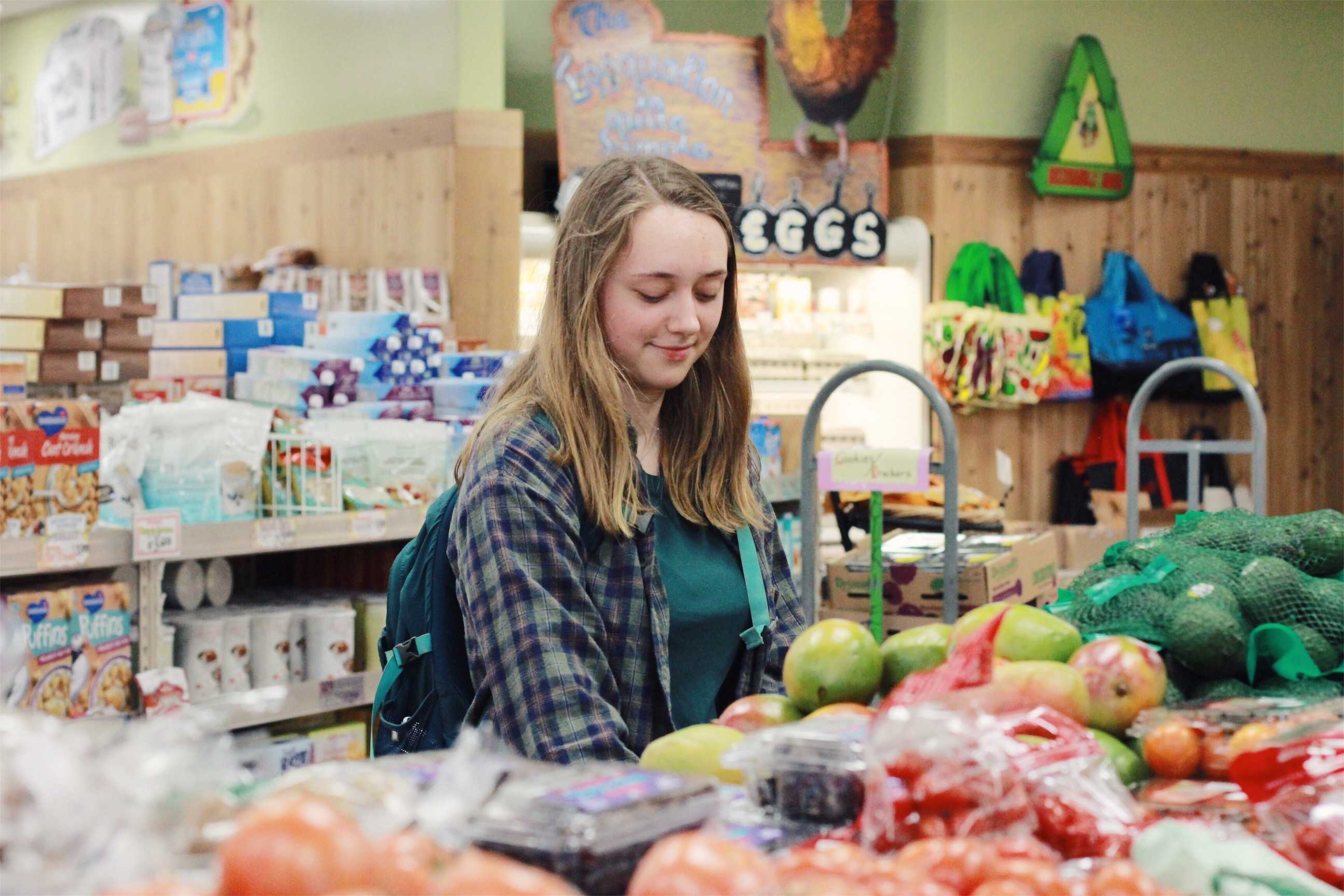
Although dietary restrictions can be inconvenient, veganism is a willing choice for some Palo Alto High School students. This choice often bears the brunt of many jokes, but there is more to veganism than observers might realize.
In the United States, half a percent of the population is vegan, according to Veganbits.com, meaning they no longer consume any meat or animal byproducts, such as dairy, eggs or honey. According to Healthline, some benefits of veganism include lower blood sugar, protection against certain cancers and potential reduction of pain from arthritis.
Junior Lucy Volino was vegetarian for 10 years but recently transitioned to veganism.
“My brother was skeptical I would ever be able to do it, and so, driven by his doubt, I started to transition to eating fewer and fewer animal products,” Volino said.
Volino did not find the transition to be too difficult, especially with the abundance of substitutes available in grocery stores and restaurants.
“I think the hardest part has just been wanting to eat plain dairy, such as cheese or cream cheese on things,” Volino said. “The substitutes aren’t like the real thing.”
However, not all vegans adhere completely to the rules.
Junior Maraleis Sinton is not fully vegan because of its inconvenience when eating out or traveling.
“In social settings, I’m more relaxed about being vegan,” Sinton said. “It’s more about making a conscious decision not to than needing it to be an all or nothing deal.”
However, Sinton acknowledges that becoming vegan is difficult to sustain without strong intrinsic motivation.
“It’s hard to be vegan if you don’t believe in the health benefits and aren’t against animal cruelty,” Sinton said.
Senior Katie Look, who has been vegan for more than three years, shares these sentiments as well. She doesn’t mind the stereotypes about vegans because “they’re mostly true,” Look said. However, she echoes Sinton’s thoughts that those who are vegan care strongly about the reasons behind their dietary restrictions.
“People don’t realize that the truth of them [vegan jokes] is rooted in the fact that to sustain a vegan diet you have to really care about it,” Look said. “But I do think the jokes are hilarious.”
For some, switching to veganism was an extra step that made family meals difficult.
“After a week or so of attempting veganism, I realized how hard it really was to cut meat,” senior Eric He said. “In my house, every meal has some sort of meat in it. I don’t think I would give it another shot, but someone with more willpower than I have can definitely go for it.”
For those interested in going vegan, Volino, Sinton and Look emphasize the importance of slowly eliminating animal products consumed, doing research on the wider impact of veganism and watching educational videos on Youtube or Netflix.
“Don’t let the jokes bother you,” Look said. “Go to Veggie Grill.”

